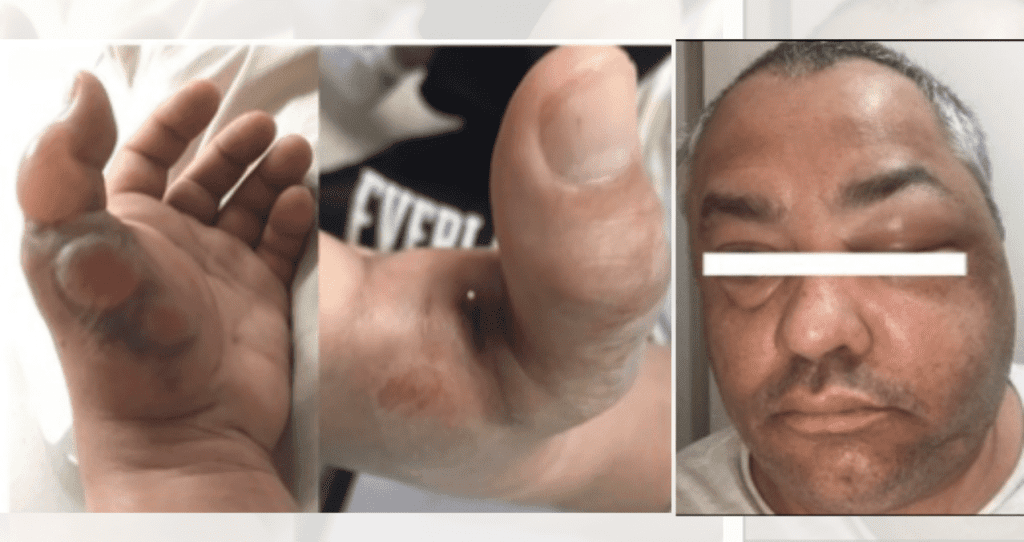Black widow poisoning is rare, but the effects of the poison are highly neurotoxic.
The case was reported in Puerto Rico. Images: Submitted by Dr. Marley Santiago, MD, dermatologist to the Journal of Medicine and Public Health.
The black widow spider, Latrodectus spp., is one of the most clinically important spiders in the world and is not usually endemic to the Caribbean. Poisoning of this animal is rare, but the effects of its venom are highly neurotoxic, ranging from localized skin irritation and pain to more systemic symptoms.
Specifically, a clinical case registered in Puerto Rico describes the consequences of a black widow spider bite in Puerto Rico and calls for the conscientiousness of health professionals, so that they consider the rare diagnosis of this type of scenario.
This was a 52-year-old man who presented to the emergency room because of a erythematous swelling Sharp pain in the left upper extremity, accompanied by profuse sweating, chills, and similar periorbital edema after he recognized a black widow spider near his bed.
The Dermatologistsattached to the Campus of Medical Sciences, showed him a “collection of pictures” of more than six different species of spiders, and identified the black widow spider as the found specimen.
During the physical examination, the patient showed several tense bullae on a violet background with protrusion of the left thenar and visible thumb and fangs.
Likewise, he presented facial swelling, swelling, pain, and limited range of motion from the left hand to the middle of the forearm, and detailed the case’s authors, including physicians Francisco Colon, Osward Carracciello, Natalia Billet, and Dr. Marley. Santiago, everyone Dermatologists.
The patient showed hypertension, neutropenia, creatine phosphokinase (CPK), and aminotransferase.
Doctors explain that the diagnosis of a black widow spider bite is usually clinical, but some lab results can help distinguish its venom. Local wound care and supportive care may be chosen for uncomplicated cases.

Dr. Marley Santiago, a dermatologist and one of the authors of the case. Photo provided by the specialist to the Journal of Medicine and Public Health.
The powerful animal venom, alpha-latrotoxin, induces a release of adrenergic and cholinergic neurotransmitters responsible for this clinical syndrome and laboratory findings, such as elevated CPK enzymes.
They argue that this type of non-endemic animal could be in an uncommon area due to human transportation.
The clinicians concluded that our case highlights the importance of clinicians considering black widow spider bites as a differential diagnosis in the appropriate clinical setting.
Access the status here.



:quality(85)/cloudfront-us-east-1.images.arcpublishing.com/infobae/TEQF6EONZRFGLLLDIDD4L2O4EE.jpg)

:quality(75)/cloudfront-us-east-1.images.arcpublishing.com/elcomercio/XU32LRAEZFDDPNVHLFU3CKVBYY.jpg)
